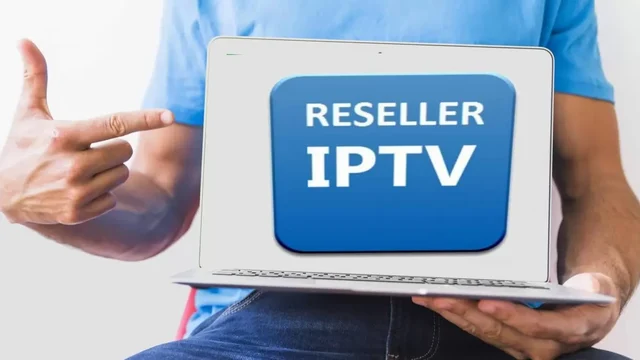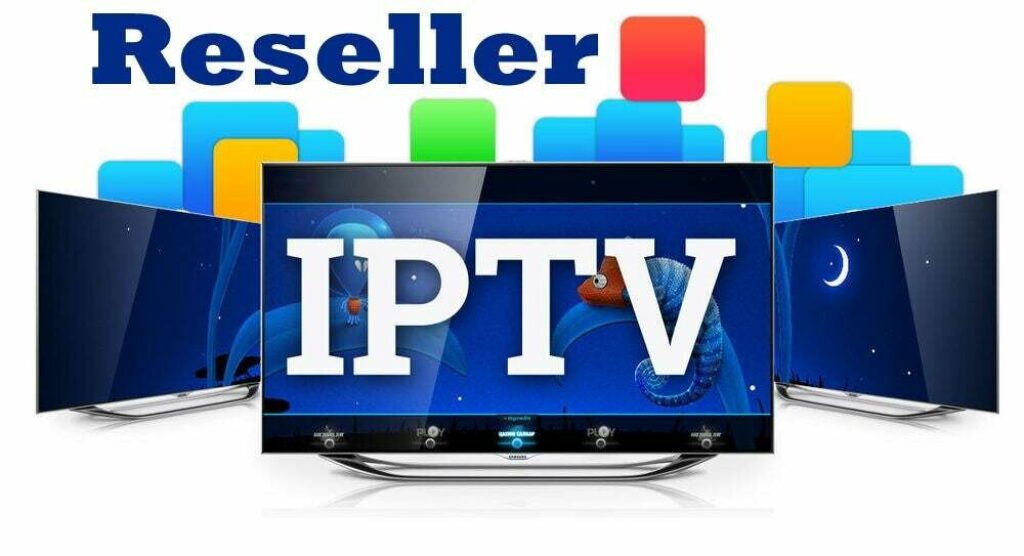
In today’s rapidly evolving digital landscape, the IPTV (Internet Protocol Television) market offers a promising opportunity for aspiring entrepreneurs. With an increasing number of consumers turning to internet-based television services, the demand for IPTV has soared, presenting a lucrative venture for resellers.
Becoming an IPTV reseller means you’ll be distributing a provider’s services to your clients, earning profits through subscription sales. To excel in this field, understanding the nuances of the IPTV business, building a solid customer base, and maintaining a reliable service are essential.
For those interested in exploring this opportunity, a Panel reseller de IPTV can be accessed.
Table of Contents
Understanding IPTV Reselling

Source: store27700856.company.site
IPTV reselling involves purchasing service subscriptions in bulk from a primary provider and then selling them to end users at a markup. This business model is appealing because it requires low initial investment and can be managed remotely. The primary task of an IPTV reseller is not only to sell but also to manage subscriptions and provide customer support. This role requires a good grasp of the IPTV technology, the market trends, and effective communication skills to handle client queries.
Therefore, IPTV resellers are people or companies that will sell subscription packages to paying clients and customers. They simply sell the provider’s packages and subscriptions as a different entity without micro-managing what is given to them.
Market Research and Choosing the Right Provider

Source: fortunebusinessinsights.com
Before diving into the IPTV reselling business, conducting thorough market research is crucial. Understanding your target audience’s viewing preferences, the most demanded channels, and competitive pricing are pivotal. Additionally, selecting the right IPTV provider is fundamental. Resellers should look for providers offering high-quality streams, a broad selection of channels, robust customer support, and reliable server stability. Factors such as uptime scores, compatibility with multiple devices, and user-friendly reseller panels should also be considered.
Setting Up Your Reseller Operation
Once you’ve chosen a provider, the next step is to set up your reselling operation. This involves configuring your reseller panel, setting up pricing structures, and creating subscription plans. Effective branding is also crucial, as it helps distinguish your services in a competitive market. This includes developing a strong brand name, a professional-looking website, and promotional materials that resonate with your target market.
Legal Considerations
Properly licensed IPTV is perfectly legal. Navigating the legal landscape of IPTV services is vital. Many countries have strict regulations regarding broadcasting and the distribution of digital content. As a reseller, you must ensure that your business operations comply with local laws concerning copyright, consumer protection, and online commerce. Consulting with a legal expert to understand the specific legal requirements and obtain necessary licenses or permissions is advisable.
Marketing Your Services

Source: axiomq.com
Effective marketing strategies are essential to attract and retain customers. Digital marketing, including SEO, social media advertising, and email marketing, can be particularly effective. Creating engaging content that highlights the benefits of your IPTV services, such as cost-efficiency, a wide range of content, and accessibility on various devices, can help draw in subscribers. Additionally, offering trials and discounts can entice potential customers to sign up.
With IPTV, you can also access a wide selection of content in real-time, including sports and news broadcasts, movie premiers, series finales, and more. It eliminates the need for expensive cable packages, giving you access to all your favorite shows on demand.
IPTV has several advantages and limitations compared to traditional television and other streaming technologies. Higher quality content: IPTV delivers higher resolutions, such as 4K and HDR, than traditional television.
IPTV: Pros vs Cons
IPTV has several advantages and limitations compared to traditional television and other streaming technologies.
Pros
- Higher quality content: IPTV delivers higher resolutions, such as 4K and HDR, than traditional television.
- Private network delivery: IPTV can be delivered over a private network, which improves security and reliability.
- Global reach: IPTV can be delivered to a global audience, regardless of their location.
- Potential for advertising revenue: IPTV can generate advertising revenue, which offsets the service costs.
- Rapidly growing market size: The IPTV market is proliferating due to the increasing popularity of streaming services.
Cons
- Sensitivity to packet loss and delays: Sensitivity to packet delays and losses leads to low-quality videos.
- Challenges of legacy networks: Legacy networks may need the necessary bandwidth to support IPTV. This limits the number of channels as well as the quality of videos.
Despite its limitations, IPTV’s advantages outweigh its disadvantages. That’s because this is a new and growing market with much potential.
Customer Service and Support

Source: medium.com
Providing excellent customer service can make or break your IPTV reselling business. It’s important to offer responsive and helpful support to address any issues your customers might encounter. This could range from troubleshooting problems to helping customers navigate the IPTV service. Effective communication channels such as live chat, email support, and a detailed FAQ can enhance customer satisfaction and retention.
Monitoring and Improving Service Quality
Regularly monitoring the quality of the service you provide is essential to maintain customer satisfaction and to troubleshoot any issues proactively. Keeping an eye on the server load, stream quality, and user feedback can help you address any problems before they affect many customers. Continuously improving your service based on customer feedback and technological advances is crucial to staying competitive in the IPTV market.
Scaling Your Business
As your reselling business grows, scaling up efficiently is important. This might involve expanding your service offerings, incorporating more advanced features, or enhancing your customer support. Additionally, building partnerships with other providers or advertisers can provide new growth opportunities. Carefully managing your resources and investing in automation can also help manage increased demand effectively.
In conclusion, becoming an IPTV reseller offers a viable business opportunity in the digital entertainment sector. By understanding the market, selecting the right provider, and implementing effective marketing and customer service strategies, you can build a successful IPTV reselling business. Remember to stay compliant with legal standards and continuously seek to improve your offerings. With the right approach, the IPTV reselling journey can be both profitable and rewarding.







